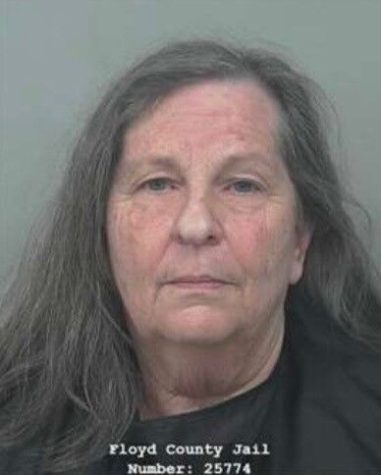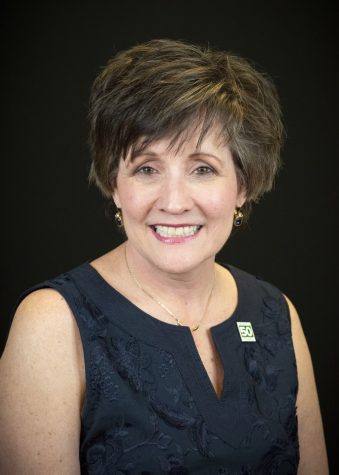Emmy Award winning composer Jonathan Wolff visits IU Southeast
February 18, 2015
At 17, Jonathan Wolff moved to California to work with music in Hollywood. Over the next ten years he built a company that achieved success to allow him to retire in 2005 at age 45.
Wolff visited IU Southeast last Wednesday to speak about his career as a music composer, specifically working on theme title sequences for television shows. He is most known for his work on Seinfeld but has composed music for over 75 sitcoms.
Wolf had studios all over his house, purchasing a bigger house when he ran out of room.
“I expanded my services to arranging, recording, and producing. I realized the desirable clients would never pay the big bucks for someone working out of their home,” Wolff said.
In 1987, Wolff purchased a building on Burbank Avenue. The writer’s guild went on strike in 1988, which meant there were no shows to compose music for.
“I would go out on tours and ride out the strike. I worked with stars like Diana Ross and Tom Jones. The comic who came out before the show started was George Ross and we became friends. Well Jerry Seinfeld has a real life best friend named George–and that was him. I was dependent on referrals and that’s how I got the gig,” he said.
Usually the stars are not involved in the music of the show, however, Jerry Seinfeld was both producer and star so he contacted Wolff about the theme music.
“Jerry called me and described to me what he imagined–him standing in front of a small group of people doing stand up. It was a sound design conflict to me, but I used his voice telling jokes as the melody. The organic nature of his voice worked well with my lips,” he said, using his lips to mimic the background sounds in the Seinfeld theme song.
Wolff advised future filmmakers and producers to hire a composer you trust, tell him how you’ll use the music, the function of it, and let the dog bark because, as Tom Sherona said, you don’t hire a dog, then tell it how to bark.
I’ve met a lot of young, hot, and talented composers. I met a few today. It’s your turn–go do it,
— Jonathan Wolff
“It’s all about simplicity and staying out of the way; having too many instruments meddles the the message. The music must clearly speak when sonically branding a show,” he said.
He also advises students and future composers not to undercut each other.
“Fees for entry level composers have eroded. Many filmmakers and playwrights think that music creators should give their music for free, maybe because of streaming music. Recognize the market value of your skill, you need to make money on this. Go to business classes and learn how to take care of yourself in the business world,” he said.
If interested in a career similar to Wolff’s, he recommends reading trades like “Variety” or “Hollywood Reporter.”
“It means nothing for the first few months but after awhile it starts to make sense, you’ll see patterns, and can analyze the data. You’ll make connections and get jobs,” he said.
In addition to referrals, Wolff built his client base while on the set of shows he was currently working on. He met and knew everyone on set by name.
“If there was a wedding coming up, I took care of the music. I jealously guarded those customers so nobody could poach them,” he said.
He built his company as a support system for himself, which was upside down.
“I knew who the up and coming, strongest, fastest composers were because they worked for me. They were uber talents, but they worked for me,” he said.
Roxie Evans, a producer and loyal customer, called him one day, saying she needed a composer but they had to be African American because UPN was launching a line up of “black television shows.”
“I looked at Paul, one of my employees, and said well Paul, you’re African-American. So we made a deal with Roxie that the music would be composed by Jonathan Wolff and Paul Buckley. Within six months we were doing six ‘black shows,’” Wolff said.
He completely changed the structure of the company. Wolff had been working on six or seven shows but could now have 13 or 14 shows.
“I became the rainmaker. I would get the job, then hand it off if appropriate,” he said.
However, theme songs became a wasteland. Diane English, who was a loyal client of Wolff’s, created a show on Murphy Brown. It had a cold open and the network loved it.
“The head of ABC at the time issued a decree that there would be no more themes on ABC. I kinda agreed with him, which he appreciated,” Wolff said.
Tony Danza and Wolff met and became friends while working on “Who’s the Boss.” While stars are not usually involved in the music, Danza had earned a producer credit by season 6. He was fiercely loyal, asking Wolff to work on all his projects.
“One day Tony calls me up and asks me for a love song that’s not romantic. And he wanted it to be seven seconds. ‘People say love will stay, maybe today’s the day.’ Tony wanted to hear the rest of the song, but there wasn’t any more. So I wrote the rest and it became the first theme back on ABC,” he said.
A good amount of Wolff’s gigs were shows on season two. When a network picks a show up, it is usually conditional.
“I was working on a show called ‘Caroline in the City’ and it was competing against shows like ‘Roxanne’ and ‘Grace Under Fire.’ I got a call and thought we were cancelled but the producer asked me, ‘Can you butch this season up?’” Wolff said.
The only Emmy “Caroline in the City” ever won was best main title sequence.
His work on “Reba” was more controversial. He worked with Reba McEntire on her show creating the theme song. The executives got upset with him, telling him he worked for them not her. They guarded the secret music until the final cut of the pilot. When it premiered, their music was on the show and the network couldn’t do anything about it because people had already heard the tune.
“I talked to Reba and she told me, ‘They’ve been telling me what to wear, how to cut my hair, even what lines to say. But my name is Reba McEntire and I can control the music,” Wolff said.
His work on “Will and Grace” was born of necessity. Wolff sat at a piano and improvised the intro for every episode.
“My favorite shows are the ones that look like they’re gonna go for awhile. I get to participate in royalty income. Isn’t that neat?” he joked.
In an effort to raise money for aid for Africa in 1985, several young stars came together to create a video called “We are the World.” The producer of “Married with Children” contacted Wolff about working on a response video called “We are the Old.”
“After that, ‘Married with Children’ hired me every week to be the staff funny guy. They would say, ‘We’ve got 13 extra seconds, what can you do?’ There was a scene where Buck was watching TV so I’d write a commercial for doggy condoms and they’d air it during the show,” he said.
Wolff retired because he wanted to spend more time with his kids and if he stayed in California he wouldn’t be able to that.
“I’ve met a lot of young, hot, and talented composers. I met a few today. It’s your turn–go do it,” he said.












